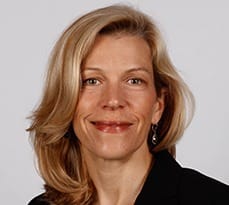Academics in management research usually focus on organisational issues in business, but they’re now also increasingly engaged in addressing some of the world’s ‘wicked problems’ like poverty and hunger.

Academics in the field of management research are rightly known for engaging studies in areas such as organisational change, business effectiveness and innovation. But how about ending world poverty and hunger? Perhaps surprisingly, those “Grand Challenges” of our time are also management scholar territory.
Why? Because change on a big scale needs more than enthusiasm. It needs expertise and knowledge of what one is up against. It’s why management researchers are increasingly turning their attention to these Grand Challenges – ranging from climate change to global health and social inequality.

“An important principle is that Grand Challenges should be studied and tackled at multiple levels,” says Dr Jennifer Howard-Grenville, Diageo Reader in Management Studies at Cambridge Judge Business School, “from the individual and community to organisational and societal levels.”
“Increasingly, scholars are seeing that you can only understand organisational or institutional action by looking beyond these to also consider the individual level – what people are actually doing on the ground – and vice versa. An issue like poverty is experienced at an individual level, but is created by factors that are societal, and can be reinforced by organisational-level decisions or actions too.”
Dr Howard-Grenville is among those involved with one of the most promising efforts to put academic expertise into service. As a member of the Academy of Management Journal’s editorial team, she helped to oversee a Special Research Forum on ‘Grand Challenges in Management’.
The team solicited articles for a dedicated issue of the journal and the response was overwhelming. “We had a huge number of submissions from people working on subjects that could have real impact,” she says. “In the end, the number of articles that were selected was more than could be printed in a single issue.”
The Forum had two objectives in mind. “The first was to point out the value of management scholarship in understanding Grand Challenges,” she says. “I don’t mean necessarily solving them; these are complex issues, often referred to as ‘wicked problems’. Rather, our intention was to say that we researchers have tools at our disposal to articulate the nature of the problems, and point toward potential solutions.”
“The second goal was to show management scholars themselves, who may be looking for future research opportunities, that we don’t need to be confined to things like growth strategy or mergers and acquisitions. There are important societal issues that businesses contribute to, and these are domains that researchers ought to be working in.”
But what does that look like in practice? A good example may be found in one of the featured papers, by Johanna Mair, Miriam Wolf and Christian Seelos, whose research reports on a decade of engagement with Gram Vikas, an NGO that works to provide better water and sanitation facilities in rural India. Through this, the organisation aims to address some of the deep-seated inequalities of caste and gender that are embedded in village culture.
In a process known as “scaffolding”, Gram Vikas devoted its resources to the immediate objective (access to clean water) in order to pursue a concealed goal that was more controversial. Dr Howard-Grenville says: “The NGO required everyone in the village to contribute to the works, whatever their caste. This seemingly innocent act of bringing everyone on board to build toilets actually started to erode the unwritten rules about castes interacting.”
“The study took a multi-level look at inequality, recognising it as a deep-seated, societal, normative issue. It’s a powerful story, and highlights the kind of research that management scholars can do.”
Getting to this stage of engagement has required a certain degree of cultural change in business schools. She says: “When I was doing my PhD, I was told never to publish a management-journal article that had ‘environment’ in the title, or I’d be thought of as a tree-hugger. Now, there are many scholars who are publishing on topics like sustainability, poverty and inequality. Management schools are starting to take these issues very seriously.”
And while interest groups such as the Special Research Forum can play a fundamental role in addressing Grand Challenges, Dr Howard-Grenville also believes that collaboration across the academy will be vital.
She says: “What is it that we as management scholars can learn from other disciplines that would bring sophistication to our own work? And what might we give to those disciplines? I speak to ecologists about biodiversity and they ask me about organisational change. We’re each seeking to understand how businesses can support ecological conservation but coming at it from completely different perspectives, and it’s enriching to put them together.”
“There’s plenty more work to be done. We want management researchers to think even further outside the box to find conceptual and practical tools we can bring to these Grand Challenges.”

